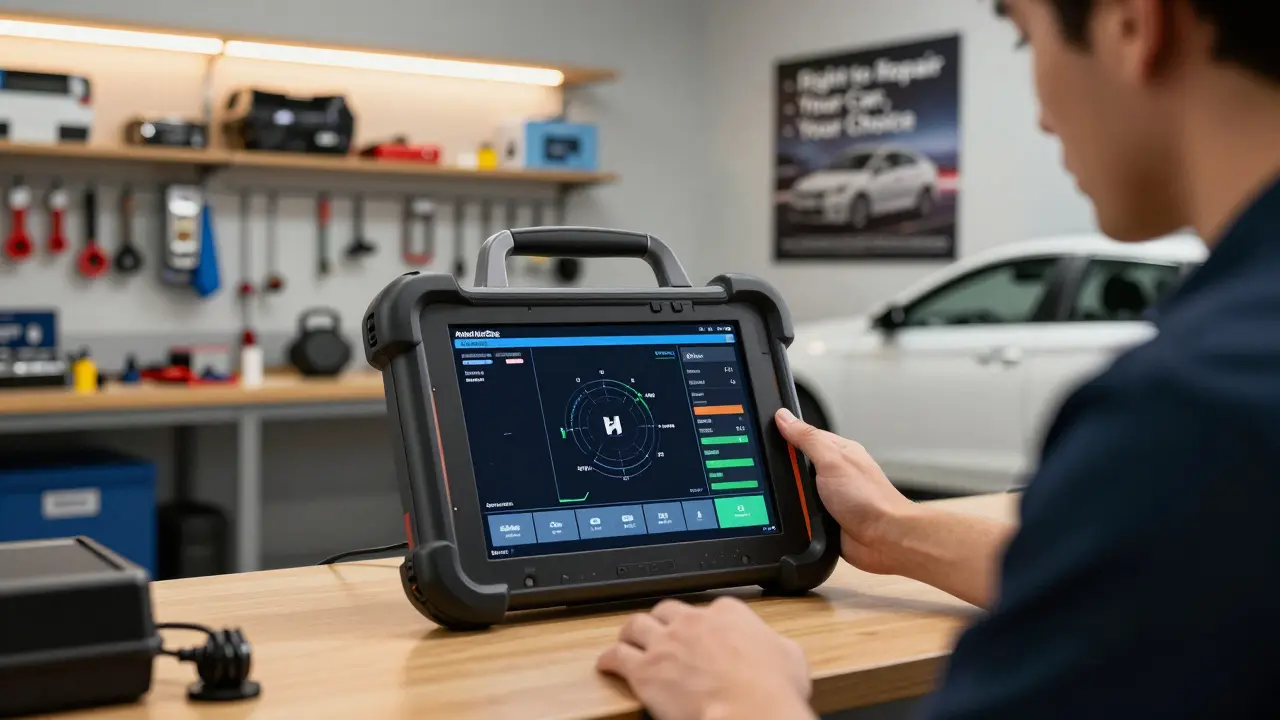Understanding the Used Car Market
The used car market can feel like a wild jungle, full of possibilities but also potential traps. Knowing the landscape is key to navigating it successfully. In recent years, there's been a significant increase in people opting for used cars due to rising prices for new models. A solid understanding of how car value depreciates is crucial. Did you know a new car can lose up to 20% of its value within the first year? That's quite a drop and precisely why buying used can be a budget-friendly option.
The trick lies in understanding supply and demand trends. For example, after the pandemic, people started favoring SUVs over sedans, which shifted the market dynamics. Knowing these trends can help you anticipate what makes and models may offer better value. Good places to start your research are online marketplaces like Autotrader or CarGurus, where you can find almost any vehicle at your fingertips. There's a sense of control in knowing what’s out there and what you can expect to pay.
The
National Automobile Dealers Association (NADA)states that doing thorough research online before hitting the dealerships can save your time and money substantially. It's all about being prepared, understanding what's realistic in terms of prices, and having a clear idea of the models that fit within your budget.
The Importance of a Thorough Inspection
There's something liberating about finally stepping into the car you might take home. However, before you get carried away, it's crucial to perform a thorough inspection. Picture this: you're at a dealership, and a shiny car catches your eye. Its appearance shouldn't be the sole determining factor. Remember, some cosmetic damages might be easily fixable, while mechanical issues could be costly in the long run.
A friend once told me, "If you don’t know what's under the hood, you're in for a surprise." Seems obvious? Perhaps, but it's advice that's often brushed aside by the inexperienced buyer. Make sure to check the engine's condition, transmission, brakes, and tires. Listen for unusual noises and watch for signs of leaks or rust. Don't hesitate to ask for a test drive. Feeling how the car handles on the road can reveal red flags you might not notice otherwise.
For those who aren’t mechanically inclined, hiring a trusted mechanic for a pre-purchase inspection can be money well spent. They'll have the trained eye needed to spot issues you might overlook. This level of diligence not only guides your decision but also helps during price negotiations if you spot issues that warrant a discount.

Decoding the Car’s History
Behind every car lies a story, and it’s your job as a buyer to piece it together. Running a vehicle history report on platforms like Carfax or the National Motor Vehicle Title Information System (NMVTIS) can tell you everything from previous accidents to the number of past owners. Knowing a car’s history is like getting to know a person’s background—it offers valuable insights into potential problems and the life it’s lived.
Don't stop at just the report. Ask for the service records from the seller. Consistent maintenance is a strong indicator of a car that’s been cared for. Some sellers might not have these records handy, but it’s worth insisting. A vehicle with a history of meticulous care might be a safer bet than one with gaps in its paperwork.
Discrepancies in the odometer reading are red flags. While odometer fraud is less common nowadays, it still happens. Watch out for signs of tampering or look for wear and tear that doesn't match the indicated mileage. For technology-savvy folks, various apps can also check these databases for you, adding another layer of security to your purchase.
Mastering Negotiation and Finalizing the Deal
Negotiation can be intimidating, but it doesn’t have to be. Stepping into the dealership with a confident stride and armed with information puts you in a strong position. Start with the car’s current market value—websites like Kelley Blue Book offer real-time pricing insights for different models and conditions.
When negotiating, stay respectful but firm. Communication is key. For instance, if you noticed a tire that needs replacing, mention it as a bargaining chip. If you’ve done your homework and know comparable prices elsewhere, bring them up. Sellers are generally more willing to negotiate when they know you're informed.
Once you're on the same page regarding price, don’t rush to sign. Look closely at all the paperwork, whether you're buying from a dealer or a private seller. Make sure every detail matches your expectations and that no hidden fees suddenly pop up. If everything checks out, then it’s time to shake hands and take the leap into car ownership.
So there you have it, a deep dive into the ins and outs of buying a used car. Remember, diligence pays off. Each step you take from research to negotiation can save you money and ensure you drive away in a vehicle suitable for your needs and budget.


Adithya M
July 17, 2025 AT 22:35Man, this guide hits the nail on the head! Buying a used car is such a gamble if you don't know your stuff. I’ve seen too many people get played because they skipped the thorough inspection or didn't bother digging into the car history.
One thing I always emphasize is checking for any frame damage or signs of flooding. These things are often hidden but can basically ruin the car down the line.
Also, never accept the first price. A lot of sellers expect you to haggle, so be ready to push hard. It’s about timing and confidence.
Has anyone here used a mechanic for a pre-purchase inspection? I swear by it. Worth every penny.
Donald Sullivan
July 17, 2025 AT 23:08Absolutely, the negotiation part is where most buyers get weak. Don’t let them trap you with those sweet talk tactics!
And on the inspection bit, yeah, some things you can't spot unless you are a pro or have a mechanic with you. I’d add that checking the car’s service records is key too.
One thing people miss is going for a test drive on different roads to get a feel for how it handles under various conditions.
At the end of the day, if the deal feels even slightly off, walk away. There’s always another car.
Jessica McGirt
July 17, 2025 AT 23:41This guide is really helpful! It’s so easy to feel overwhelmed when you’re not familiar with cars.
I’d love to know more about how to effectively research a vehicle's history online. Are there trustworthy sites or services you'd recommend?
Also, does anyone have tips on questions to ask the seller that often get overlooked?
I’ve heard asking about previous accidents or modifications is vital.
Thanks in advance!
Daniel Kennedy
July 18, 2025 AT 05:40Jessica, great questions! I normally use Carfax reports combined with local DMV records when available. They usually give you a decent picture of the car’s past ownership and accident history.
Another underrated tip is to check if the odometer reading matches the service records. Sometimes sellers roll back mileage to make the car seem younger.
And absolutely ask about modifications – some can void warranties or cause future problems.
Hope that helps. It’s all about being sharp and doing your homework before committing.
Ronak Khandelwal
July 18, 2025 AT 11:46😍 I love how this post empowers buyers to make smarter decisions! It’s like unlocking a secret level in the car-buying game.
Besides the technical tips, I’d say trust your intuition too. If anything feels off or the seller seems dodgy, it’s okay to back off.
And, please, bring a friend along for moral support and a second opinion. A fresh set of eyes can catch stuff you might miss 😊
Anyone else have memorable car buying stories where gut feeling saved the day?
Sibusiso Ernest Masilela
July 18, 2025 AT 23:26Ugh, honestly, some people just jump into buying used junk thinking they're scoring a deal. You get what you pay for, and often it’s money down the drain.
Learn to spot quality brands and models that hold value. Don’t get lured by flashy ads with photo tricks.
This guide is basic, but it doesn’t spare the harsh reality of clunkers pretending to be gems. Vehicle history is crucial but buyer beware — many reports can be doctored.
Stay vigilant. If it’s too good, it probably is.
Taylor Hayes
July 19, 2025 AT 14:10Finding the right used car really boils down to a mix of patience and knowledge.
Also, I find talking to current or past owners on forums of the car’s make and model gives insight not found in official records.
It’s a bit like detective work but it pays off — you get a better grip on what to expect regarding maintenance costs and reliability.
And don’t skip out on budgeting for future repairs or upgrades, even if the car looks perfect now.
Sharing stories and tips like these really help normalize the process for many first-time buyers.
Tina van Schelt
July 20, 2025 AT 13:13One aspect I find fascinating is how the seller’s behavior can reveal a lot.
If they’re evasive about the car’s history or rush you, that’s a huge red flag in my book.
Trust builds a bridge in these transactions; if it’s shaky, just walk away.
Plus, don’t forget to check tire wear patterns and listen to the engine for any strange noises — these little things often hint at bigger issues ahead.
The devil’s in the details, right? This guide is a solid compass for navigating the used car jungle.
Sanjay Mittal
July 21, 2025 AT 14:30For everyone here, I want to add a technical tip: always check under the hood for any leaks or discolorations. Also, the condition of belts and hoses can tell you if the car has been well maintained.
Another point is to test all electrical components like windows, lights, and the AC system. These can be expensive to fix when faulty.
Finally, be mindful of the vehicle’s age relative to mileage. A 10-year-old car with 50k miles can be a gem; a 5-year-old with 150k miles might be on its last legs.
Hope these help you guys seal the best deal!
Jeff Napier
July 22, 2025 AT 05:30Guys, let’s not forget the government and dealer rackets behind these “used car bargains.” Ever notice how prices sometimes re-inflate suspiciously after a dip?
This whole system is designed to separate you from your hard-earned cash, so read between the lines.
But despite the conspiracies, getting educated as this post suggests is your best shield.
Use this info smartly and don’t get caught in the hype or scare tactics from sellers.